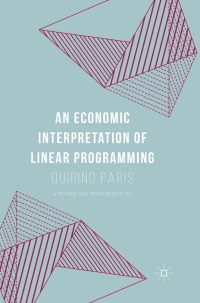A price-taking farmer wants to find a profit-maximizing production plan by cultivating wheat, tomatoes, corn and alfalfa.
Question:
A price-taking farmer wants to find a profit-maximizing production plan by cultivating wheat, tomatoes, corn and alfalfa. He owns 50 acres of land,
$60,000 of operating capital but all the required labor must be hired. The technology of producing the four crops requires the employment of the three inputs in the following quantities per unit of product: one unit of wheat requires 1 acre of land, $1500 of operating capital and 15 days of (hired) labor. One unit of tomatoes requires 0.5 acres of land, $3000 of operating capital and 50 days of labor. One unit of corn required 0.6 acres of land, $2000 of operating capital and 20 days of labor. One unit of alfalfa requires 1 acre of land, $1000 of operating capital and 10 days of labor. Labor can be hired at $80 per day. The market price of wheat is $150, of tomatoes $1000, of corn $400, and of alfalfa $500.
a) Formulate the primal problem of this price-taking entrepreneur.
b) Write down the dual problem and give a meaningful economic interpretation to all its components. ( ou can use either the Transposition Principle or the definition of T C,MC, and MR).
Step by Step Answer:

An Economic Interpretation Of Linear Programming
ISBN: 9781137573926
1st Edition
Authors: Quirino Paris






